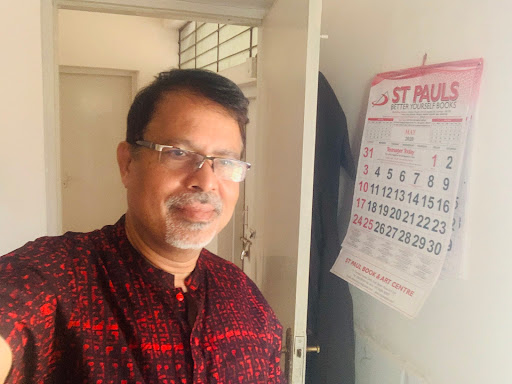Report to the General
Minister and Council on the
Meetings of the Justice, Peace and Integrity of
Creation (JPIC) Commission Padre Pio Spirituality Center
Pretoria, South
Africa
23-29 October, 2014The Capuchin JPIC Commission
Meeting with General Minister
The Minister General, Br.
Mauro Jöhri, then met with the Director of JPIC, members of the JPIC Commission
and the friars engaged in this work in Africa to specifically discuss our
Capuchin JPIC efforts. We briefly reviewed the strategic plan for the current
sexennium and received an update on the survey of social projects of the Order
that was conducted earlier this year.
Br. Jim Donegan reported that
the JPIC Commission received 106 responses to the survey. It was acknowledged
that this was a small sample of the many social projects and that we need to
find a way to share the results of the survey with the friars and to allow them
to continue to contribute information, e.g. by posting them on the General
Curia/JPIC website. Br. Mauro suggested that results from the survey would be
particularly relevant to PCO VIII, on the grace of working. He also noted that
the General Council, Economo and the Economic Solidarity have recommended that
the JPIC Commission needs to be more involved in the process of seeking grants
for social projects from Economic Solidarity and to work with the international
funding agencies.
In his remarks to the
assembled friars, Br. Mauro revisited some of the JPIC Commission’s work in
recent years, including the meetings on migration in Bangkok, Krakow and Lima
in 2011.
The most successful of these meetings was for the Americas, because
the issue was very immediate to the brothers there and they were very engaged.
Br. Mauro observed that
African friars are taking charge of many social projects; but he also mentioned
several concerns that had been raised by recent visitations: the need to better
integrate JPIC into our formation; tribalism within the Order; funding for
projects must go to the projects; and money received by a brother is not for
him alone but for the fraternity.
Many circumscriptions, Br.
Mauro mentioned, do not have a JPIC Commission, and if there are brothers
working in this area, some of the work is not very well transmitted to concrete
action. The Order’s JPIC Director and Commission and their work suffer from a
lack of support from the circumscriptions and
conferences. What can we do to develop JPIC in the many parts of the world that
do not yet have the necessary JPIC infrastructure?
The Order has organized a
number of JPIC conferences over the years, but it is hard to determine what the
effects have been beyond the production of documents. In planning these
conferences, we need to focus on concrete follow-up and the integration of
their work in the life of fraternities throughout the world. It is not enough
to publish and show our brothers what we are doing. We need to build upon it.
The three general ministers of the OFM, OFM Cap. and OFM Conv. have noted a
certain malaise in the JPIC work and a lack of collaboration.
Br. Mauro then invited the
friars to consider several questions: Do we need to develop a single JPIC
Office and Commission for the Franciscan Family? Should there be a JPIC theme
for Africa? Can the work of JPIC and DPI be better integrated? Friars then
broke into three language groups (English, Portuguese and French) to reflect on
these issues.
In their responses, the
brothers made several observations based on their experiences. These included:
When friars are assigned to do
JPIC work, it is important to discern whether they are qualified, motivated and
truly available for it.
Much JPIC work is with people and
transforming lives; and it is less attractive or concrete than social work or
direct services to the poor.
We need to acknowledge the
complexities of Africa and see that some issues are as urgent in some countries
as in others.
The animation and advocacy of
JPIC need to be better integrated in our circumscriptions with our social
works—education, work with the homeless, healthcare, etc.
Two areas that are weak in Africa
are collaboration and communication. We can learn much from each other.
Tribalism and ethnic tensions are
big problems in many parts of Africa; but sometimes they are exaggerated.
Migration in Europe and America
plays out a little differently than in Africa. For example, in many countries
in Africa migration is caused by war and other forms of conflict. In Europe and
America, by contrast, migration is more often economically motivated.
For brothers to be effective in
JPIC work, they need to have passion for it. A provincial or custos cannot
appoint just any friar to do it.
In doing our JPIC work, we need
to have a better knowledge of how our various systems of local, national and
international laws work.
Collaboration is essential to
effective JPIC work. This includes sending brothers outside of our
circumscriptions to others in the Order.

No comments:
Post a Comment